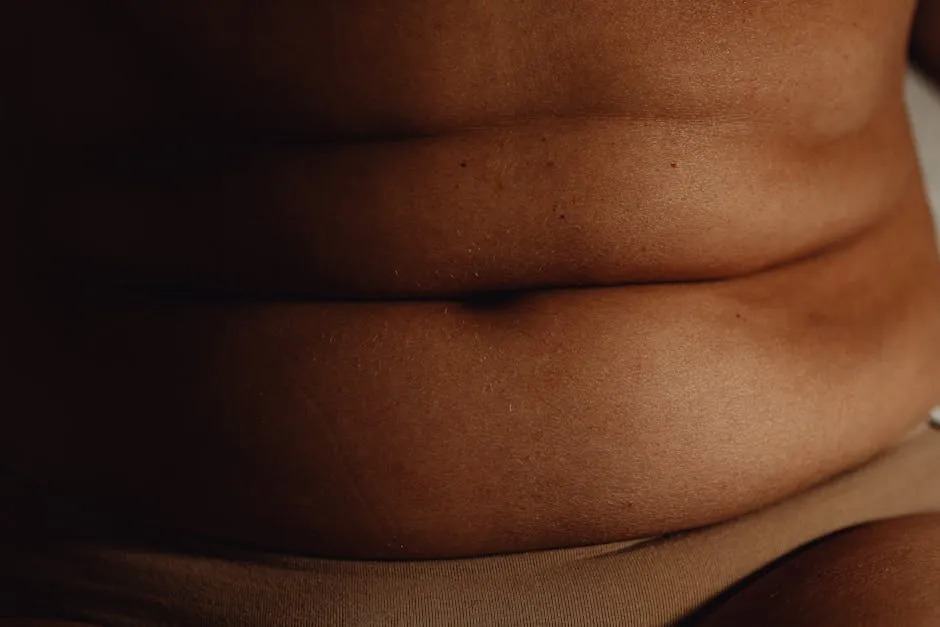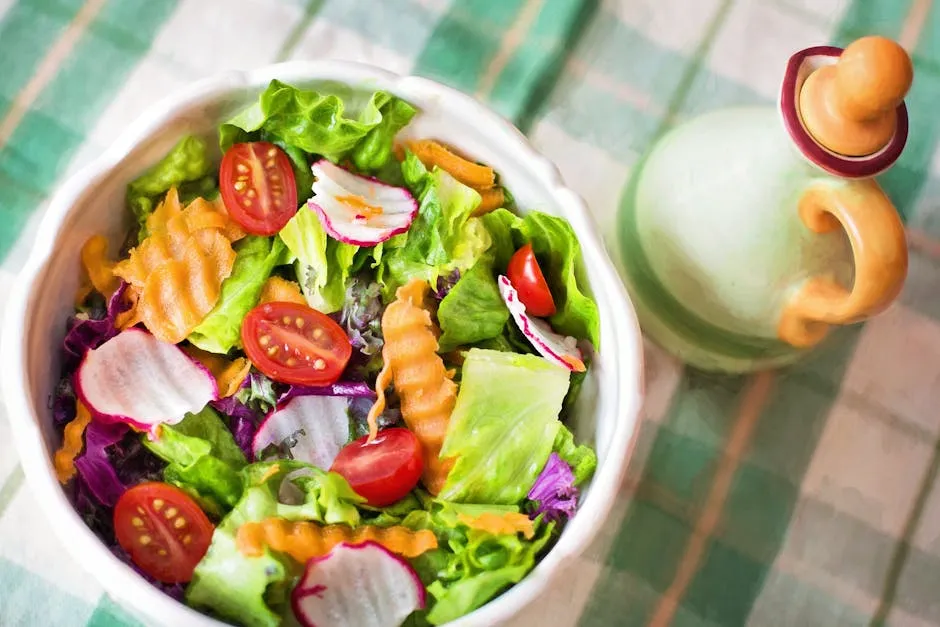
Why Am I So Bloated I Look Pregnant? Understanding and Managing Bloating
- Simethicone: This medication is a gas relief agent that helps break up gas bubbles in your stomach, making it easier to pass gas.
- Digestive Aids: Products like Beano Dietary Supplement can help digest complex carbohydrates found in beans and vegetables, reducing gas production. Lactase supplements can assist those with lactose intolerance in digesting dairy products.
- Antacids: If bloating is linked to acid reflux, antacids can neutralize stomach acid and relieve discomfort.
- Probiotics: Consider adding probiotics to your regimen. These beneficial bacteria can help balance your gut flora, improving digestion and reducing bloating in the long run.

In conclusion, managing bloating requires a multifaceted approach. By making mindful lifestyle changes, utilizing effective home remedies, and considering over-the-counter solutions, you can regain control over your tummy troubles. Remember, if bloating persists or worsens, it’s wise to consult a healthcare professional to rule out any underlying issues. Take charge of your digestive health and say goodbye to that “pregnant” look!
Exercise and Physical Activity
Regular exercise is like a secret weapon against bloating! It not only helps with digestion but also reduces that uncomfortable feeling of fullness. When you get moving, your body shifts gas and food through your digestive system more efficiently. So, if you’re feeling like a human balloon, it’s time to lace up those sneakers!

What kind of exercises should you consider? Let’s look at a few fun options:
- Walking: A simple stroll can work wonders. It’s low-impact and helps stimulate digestion. Plus, you can do it anywhere—no gym membership necessary! Aim for at least 30 minutes a day.
- Yoga: This ancient practice is excellent for reducing bloating. Poses like the Cat-Cow stretch and Child’s Pose can help relieve gas and tension. Not to mention, yoga helps you unwind, which can also reduce bloating caused by stress. A Yoga Mat can make your practice even more enjoyable!
- Pilates: This workout focuses on core strength and flexibility. Engaging your core can help alleviate pressure in your abdomen. It’s a win-win! A Pilates Ring can enhance your routine.
- Cardio: Whether it’s dancing, cycling, or swimming, getting your heart rate up can enhance digestion. Cardio helps move things along in your gastrointestinal tract, reducing bloating.
- Stretching: Don’t underestimate the power of a good stretch! Simple stretches can help release trapped gas and ease discomfort. Think of it as a mini massage for your insides. A Stretching Strap can help you get into those deep stretches!
Remember, while exercise can help reduce bloating, it’s essential to listen to your body. If you’re feeling particularly uncomfortable, opt for gentler movements instead of high-intensity workouts. Keeping active not only improves digestion but also boosts your mood. So, let’s get moving and say goodbye to that “pregnant” look!

Conclusion
Bloating is a common yet often distressing condition that can significantly affect your quality of life. Understanding the myriad causes and effective management strategies can help you navigate this discomfort. By making informed dietary choices, adopting healthier eating habits, and incorporating regular physical activity, you can reduce the frequency and intensity of bloating episodes. Remember, if your symptoms persist or worsen, it’s always best to consult a healthcare professional to rule out any serious conditions. Take charge of your gut health today, and bid farewell to that uncomfortable “pregnant” feeling!
Please let us know what you think about our content by leaving a comment down below!
Thank you for reading till here 🙂
Understanding how to manage bloating can be enhanced by recognizing potential triggers in your environment, such as sleepwalking. why is it important to recognize sleepwalking triggers in your home
All images from Pexels
- Peppermint Tea: This soothing beverage can relax your gastrointestinal muscles, easing discomfort. Sip on some peppermint tea after meals to help calm your belly.
- Ginger: Known for its anti-inflammatory properties, ginger can help settle your stomach. Try incorporating fresh ginger into dishes or brew ginger tea for a comforting drink. You might want to check out Ginger Tea Bags for easy brewing!
- Heating Pads: Applying warmth to your abdomen can work wonders. A Heating Pad for Pain Relief or warm compress can relax the muscles and provide immediate comfort.
- Herbal Teas and Natural Supplements: Besides peppermint and ginger, consider chamomile or fennel tea. These herbal options can help reduce gas and bloating. Additionally, natural supplements like probiotics can promote a healthy gut and alleviate bloating over time. Check out some Probiotic Capsules for gut health support!

Over-the-Counter Solutions
Sometimes, a little extra help is needed. Over-the-counter medications can provide quick relief from bloating.
- Simethicone: This medication is a gas relief agent that helps break up gas bubbles in your stomach, making it easier to pass gas.
- Digestive Aids: Products like Beano Dietary Supplement can help digest complex carbohydrates found in beans and vegetables, reducing gas production. Lactase supplements can assist those with lactose intolerance in digesting dairy products.
- Antacids: If bloating is linked to acid reflux, antacids can neutralize stomach acid and relieve discomfort.
- Probiotics: Consider adding probiotics to your regimen. These beneficial bacteria can help balance your gut flora, improving digestion and reducing bloating in the long run.

In conclusion, managing bloating requires a multifaceted approach. By making mindful lifestyle changes, utilizing effective home remedies, and considering over-the-counter solutions, you can regain control over your tummy troubles. Remember, if bloating persists or worsens, it’s wise to consult a healthcare professional to rule out any underlying issues. Take charge of your digestive health and say goodbye to that “pregnant” look!
Exercise and Physical Activity
Regular exercise is like a secret weapon against bloating! It not only helps with digestion but also reduces that uncomfortable feeling of fullness. When you get moving, your body shifts gas and food through your digestive system more efficiently. So, if you’re feeling like a human balloon, it’s time to lace up those sneakers!

What kind of exercises should you consider? Let’s look at a few fun options:
- Walking: A simple stroll can work wonders. It’s low-impact and helps stimulate digestion. Plus, you can do it anywhere—no gym membership necessary! Aim for at least 30 minutes a day.
- Yoga: This ancient practice is excellent for reducing bloating. Poses like the Cat-Cow stretch and Child’s Pose can help relieve gas and tension. Not to mention, yoga helps you unwind, which can also reduce bloating caused by stress. A Yoga Mat can make your practice even more enjoyable!
- Pilates: This workout focuses on core strength and flexibility. Engaging your core can help alleviate pressure in your abdomen. It’s a win-win! A Pilates Ring can enhance your routine.
- Cardio: Whether it’s dancing, cycling, or swimming, getting your heart rate up can enhance digestion. Cardio helps move things along in your gastrointestinal tract, reducing bloating.
- Stretching: Don’t underestimate the power of a good stretch! Simple stretches can help release trapped gas and ease discomfort. Think of it as a mini massage for your insides. A Stretching Strap can help you get into those deep stretches!
Remember, while exercise can help reduce bloating, it’s essential to listen to your body. If you’re feeling particularly uncomfortable, opt for gentler movements instead of high-intensity workouts. Keeping active not only improves digestion but also boosts your mood. So, let’s get moving and say goodbye to that “pregnant” look!

Conclusion
Bloating is a common yet often distressing condition that can significantly affect your quality of life. Understanding the myriad causes and effective management strategies can help you navigate this discomfort. By making informed dietary choices, adopting healthier eating habits, and incorporating regular physical activity, you can reduce the frequency and intensity of bloating episodes. Remember, if your symptoms persist or worsen, it’s always best to consult a healthcare professional to rule out any serious conditions. Take charge of your gut health today, and bid farewell to that uncomfortable “pregnant” feeling!
Please let us know what you think about our content by leaving a comment down below!
Thank you for reading till here 🙂
Understanding how to manage bloating can be enhanced by recognizing potential triggers in your environment, such as sleepwalking. why is it important to recognize sleepwalking triggers in your home
All images from Pexels
Introduction
Bloating can often feel like an unwanted party in your stomach, leaving you with a belly that resembles a balloon. You look in the mirror, poke your abdomen, and wonder, “Why do I look pregnant?” This puzzling sensation is quite common and can happen to anyone, but there are various reasons behind it. From what you ate for lunch to more serious health conditions, bloating can range from a minor nuisance to a cause for concern.
The phenomenon of bloating is not just about how your belly looks; it’s about how it feels. You might experience discomfort, pressure, and a sense of fullness that just won’t quit. Many factors contribute to this condition, including dietary choices, lifestyle habits, and even hormonal fluctuations. Understanding the root causes is key to addressing the issue effectively.
In this article, we will unpack the common causes of bloating and provide you with practical tips for relief. We’ll look at how gas buildup, food intolerances, and other factors can lead to your discomfort. Plus, we’ll offer strategies to help manage bloating when it strikes. So, grab a comfy seat, and let’s tackle this issue head on—because nobody likes to feel like they’re carrying around a food baby!
Understanding why you feel bloated is crucial. It can help you identify triggers and adopt preventive measures. With the right information, you can regain your comfort and confidence, saying goodbye to that “pregnant” look. Now let’s get into the nitty-gritty of bloating and find out what’s really going on in your gut!

What is Bloating?
Bloating is that uncomfortable, full sensation in your belly. It often feels like you’ve swallowed a beach ball. Common symptoms include swelling, pain, and excessive gas. Your stomach might rumble like a thunderstorm, leaving you questioning your digestive choices. Some people even feel tenderness in the abdomen, which can be quite disconcerting.
It’s essential to differentiate bloating from distension. While both involve a swollen abdomen, distension refers to an increase in the size of the belly due to gas or fluid buildup. Bloating, on the other hand, encompasses the uncomfortable feeling associated with this swelling. It’s like the difference between a balloon that’s just inflated and one that’s been filled to the brim and ready to pop!
Bloating can disrupt daily life. You might find yourself avoiding social situations, fearing the dreaded “food baby” look. It can affect your confidence and lead to discomfort during routine activities. Whether it’s buttoning your jeans or simply sitting down, the pressure can be quite distracting. Understanding bloating is the first step in managing it, so let’s figure out what’s causing that puffiness.

Common Causes of Bloating
Gas Accumulation
Swallowing Air
One of the sneakiest culprits of bloating is swallowing air. This can happen when you eat too quickly, drink carbonated beverages, or even chew gum. Each gulp of air makes your stomach feel fuller than it should. It’s like your belly is throwing a surprise party for all that extra gas!
Digestive Issues
Certain foods can contribute to gas production. Beans, broccoli, and carbonated drinks are notorious for causing a ruckus in your gut. When these foods break down, they can produce gas that leads to bloating. If you notice that your stomach swells after certain meals, it might be time to reconsider your menu.
To help manage those pesky gas bubbles, consider trying Simethicone Gas Relief Tablets. They work by breaking up gas bubbles, making it easier for your body to get rid of them. A little relief can go a long way!
Food Intolerances
Food intolerances are another common cause of bloating. Lactose and gluten are the usual suspects. When your body struggles to digest these foods, it can lead to uncomfortable bloating. Keeping a food diary can be a game changer! Note what you eat and how you feel afterward. This can help identify which foods are your personal bloating villains.
Hormonal Changes
Hormonal fluctuations can wreak havoc on your gut. Many women experience bloating during their menstrual cycle or menopause. The hormonal rollercoaster can slow down digestion and lead to that uncomfortable fullness. If you feel like a balloon around your period, you’re not alone—many women share this experience.

Gastrointestinal Disorders
Conditions like Irritable Bowel Syndrome (IBS) and Small Intestinal Bacterial Overgrowth (SIBO) can lead to chronic bloating. These disorders affect how your digestive system functions. If bloating is a regular part of your life, it may be time to consult a healthcare professional for a thorough evaluation.
Other Factors
Fluid retention is another sneaky cause of bloating. High sodium intake, for instance, can make your body hold onto water, leading to that puffy feeling. Constipation can also contribute; when bowel movements are infrequent, it can cause food to sit in your gut longer, creating gas and discomfort.
Stress, lifestyle choices, and even lack of exercise can also play a role. Regular movement helps keep your digestive system in check, while stress can lead to digestive woes. Finding balance in your life can significantly impact your overall gut health.

Understanding these common causes can empower you to make informed decisions about your diet and lifestyle. With this knowledge, you can tackle bloating head-on and reclaim your comfort.
Gastrointestinal Disorders
Gastrointestinal disorders can be a significant reason for bloating. Take Irritable Bowel Syndrome (IBS), for instance. This common condition affects millions, causing abdominal discomfort and irregular bowel habits. People with IBS often experience bloating that feels like a balloon ready to burst. The gut becomes sensitive to certain foods, leading to gas and discomfort.
Then there’s Small Intestinal Bacterial Overgrowth (SIBO). This sneaky condition occurs when bacteria that normally reside in the colon start dominating the small intestine. The result? You guessed it—chronic bloating and a host of other digestive issues. This bacterial imbalance can lead to gas production that leaves you feeling like a walking airbag.
Other gastrointestinal disorders, such as celiac disease and inflammatory bowel disease, can also contribute to bloating. These conditions disrupt digestion and nutrient absorption, leading to a distended belly. If you notice persistent bloating alongside other symptoms, it might be time to consult a healthcare provider for a thorough evaluation.

Other Factors
Bloating isn’t just about what you eat; other factors play a crucial role too. Fluid retention can cause your abdomen to swell, making you feel as if you’ve gained an extra layer. High sodium intake is often the villain here, pulling water into your tissues and leaving you feeling puffy.
Constipation is another culprit. When bowel movements are infrequent, food can linger in your gut, creating gas and discomfort. It’s like having a traffic jam in your intestines—nobody’s going anywhere!
Lifestyle factors can also contribute. Stress levels can wreak havoc on your digestive system. When you’re stressed, your body can slow down digestion, leading to that uncomfortable bloated feeling. Exercise can help keep things moving, so don’t underestimate the power of a good walk or stretch!

When to Seek Medical Attention
When bloating becomes your unwelcome companion, knowing when to seek medical attention is crucial. If you experience persistent bloating that doesn’t go away after a few days, it might be time for a check-up. Especially if this bloating is accompanied by severe abdominal pain, weight loss, or changes in your stool habits. These symptoms can indicate more serious conditions that warrant prompt attention.
Certain serious conditions are linked to bloating. Ovarian cancer, for instance, can present with bloating as an early symptom. It’s essential to listen to your body. If you’re feeling bloated along with other concerning symptoms, don’t hesitate to reach out to a healthcare professional.

Moreover, if you have a family history of gastrointestinal disorders or cancer, be proactive. Regular check-ups can help catch any potential issues early. Your health is worth the attention!
In summary, don’t ignore persistent bloating. It can often signal something more than just a simple stomach upset. Being informed about your symptoms and seeking help when necessary can lead to better health outcomes. So, keep an eye on your gut feelings!
Remedies and Management Strategies
Bloating can feel like a circus act in your stomach—uninvited and unrelenting! Thankfully, there are plenty of remedies and management strategies you can employ to tame that unruly belly. Let’s break it down into three main categories: lifestyle changes, home remedies, and over-the-counter solutions.
Lifestyle Changes
Diet Modification
First and foremost, let’s talk about your diet. Eating is a delightful experience, but sometimes it can lead you to a bloated battle. Start by identifying trigger foods that may be wreaking havoc on your gastrointestinal harmony. Common culprits include beans, lentils, dairy products, and certain vegetables like broccoli and cabbage.

A balanced fiber intake is essential. Too little fiber can lead to constipation, while too much can cause bloating. It’s like walking a tightrope—find the sweet spot that keeps your digestive system in check. Gradually increase your fiber consumption with fruits, vegetables, and whole grains to avoid overwhelming your tummy. A good Fiber Supplement Capsule can also support your daily intake!
Eating Habits
Next, let’s talk about how you eat. Eating too quickly is akin to gulping down air—no one wants to feel like a balloon! Slow down, chew your food thoroughly, and savor every bite. This allows your stomach to signal when it’s full, reducing the likelihood of overeating.
Consider portion sizes, too. Instead of tackling a massive plate, aim for smaller, more frequent meals throughout the day. This approach can help maintain steady digestion and prevent that uncomfortable “food baby” feeling.

Hydration
Hydration is your friend! Drinking water not only keeps you refreshed but also aids digestion. Staying hydrated helps prevent constipation and keeps food moving smoothly through your system. Aim for at least eight glasses of water a day. Herbal teas, particularly peppermint and ginger, can also be great allies in your quest for digestive comfort. Consider stocking up on Peppermint Tea Bags to sip after meals!

Home Remedies
When bloating strikes, there are effective home remedies that can provide relief.
- Peppermint Tea: This soothing beverage can relax your gastrointestinal muscles, easing discomfort. Sip on some peppermint tea after meals to help calm your belly.
- Ginger: Known for its anti-inflammatory properties, ginger can help settle your stomach. Try incorporating fresh ginger into dishes or brew ginger tea for a comforting drink. You might want to check out Ginger Tea Bags for easy brewing!
- Heating Pads: Applying warmth to your abdomen can work wonders. A Heating Pad for Pain Relief or warm compress can relax the muscles and provide immediate comfort.
- Herbal Teas and Natural Supplements: Besides peppermint and ginger, consider chamomile or fennel tea. These herbal options can help reduce gas and bloating. Additionally, natural supplements like probiotics can promote a healthy gut and alleviate bloating over time. Check out some Probiotic Capsules for gut health support!

Over-the-Counter Solutions
Sometimes, a little extra help is needed. Over-the-counter medications can provide quick relief from bloating.
- Simethicone: This medication is a gas relief agent that helps break up gas bubbles in your stomach, making it easier to pass gas.
- Digestive Aids: Products like Beano Dietary Supplement can help digest complex carbohydrates found in beans and vegetables, reducing gas production. Lactase supplements can assist those with lactose intolerance in digesting dairy products.
- Antacids: If bloating is linked to acid reflux, antacids can neutralize stomach acid and relieve discomfort.
- Probiotics: Consider adding probiotics to your regimen. These beneficial bacteria can help balance your gut flora, improving digestion and reducing bloating in the long run.

In conclusion, managing bloating requires a multifaceted approach. By making mindful lifestyle changes, utilizing effective home remedies, and considering over-the-counter solutions, you can regain control over your tummy troubles. Remember, if bloating persists or worsens, it’s wise to consult a healthcare professional to rule out any underlying issues. Take charge of your digestive health and say goodbye to that “pregnant” look!
Exercise and Physical Activity
Regular exercise is like a secret weapon against bloating! It not only helps with digestion but also reduces that uncomfortable feeling of fullness. When you get moving, your body shifts gas and food through your digestive system more efficiently. So, if you’re feeling like a human balloon, it’s time to lace up those sneakers!

What kind of exercises should you consider? Let’s look at a few fun options:
- Walking: A simple stroll can work wonders. It’s low-impact and helps stimulate digestion. Plus, you can do it anywhere—no gym membership necessary! Aim for at least 30 minutes a day.
- Yoga: This ancient practice is excellent for reducing bloating. Poses like the Cat-Cow stretch and Child’s Pose can help relieve gas and tension. Not to mention, yoga helps you unwind, which can also reduce bloating caused by stress. A Yoga Mat can make your practice even more enjoyable!
- Pilates: This workout focuses on core strength and flexibility. Engaging your core can help alleviate pressure in your abdomen. It’s a win-win! A Pilates Ring can enhance your routine.
- Cardio: Whether it’s dancing, cycling, or swimming, getting your heart rate up can enhance digestion. Cardio helps move things along in your gastrointestinal tract, reducing bloating.
- Stretching: Don’t underestimate the power of a good stretch! Simple stretches can help release trapped gas and ease discomfort. Think of it as a mini massage for your insides. A Stretching Strap can help you get into those deep stretches!
Remember, while exercise can help reduce bloating, it’s essential to listen to your body. If you’re feeling particularly uncomfortable, opt for gentler movements instead of high-intensity workouts. Keeping active not only improves digestion but also boosts your mood. So, let’s get moving and say goodbye to that “pregnant” look!

Conclusion
Bloating is a common yet often distressing condition that can significantly affect your quality of life. Understanding the myriad causes and effective management strategies can help you navigate this discomfort. By making informed dietary choices, adopting healthier eating habits, and incorporating regular physical activity, you can reduce the frequency and intensity of bloating episodes. Remember, if your symptoms persist or worsen, it’s always best to consult a healthcare professional to rule out any serious conditions. Take charge of your gut health today, and bid farewell to that uncomfortable “pregnant” feeling!
Please let us know what you think about our content by leaving a comment down below!
Thank you for reading till here 🙂
Understanding how to manage bloating can be enhanced by recognizing potential triggers in your environment, such as sleepwalking. why is it important to recognize sleepwalking triggers in your home
All images from Pexels




